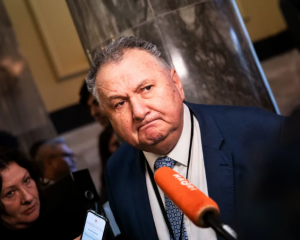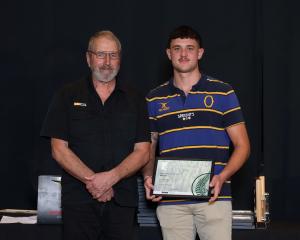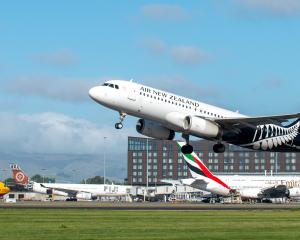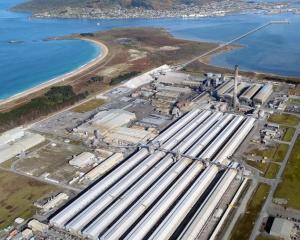
Mr Hurndell has recently taken over from Sarah Ramsay as chairman of Mainland Angel Investors, an organisation launched in the South in 2020 to make it easier for founders of new companies to get investment.
As MAI pushed to grow its membership, investors were not necessarily like the formidable faces on the likes of Dragons’ Den, with masses of money, Mr Hurndell said. Any figure from $5000 upwards could be invested.
He had invested in Race Ranger, a company established by Wanaka-based former professional triathlete James Elvery and fellow professional triathlete Dylan McNeice, of Christchurch, Mr Hurndell said.
The company designed technology which could detect drafting — when an athlete gained a benefit from resting in the slipstream of the person in front — during the bike leg of long-distance triathlons.
Race Ranger was the first deal MAI got over the line and he was on the company’s advisory board as investor representative. He was "super excited" to be part of its journey.
At MAI, it was fortunate so much great work had been done and it was getting good engagement, Mr Hurndell said. It was now about trying to increase membership which, in turn, would increase the number of deals done.
The business and investment world was changing; when people were looking at potential investment options, angel investing could provide a significant return, short or long term.
There was also a heightened awareness that start-ups could get money in different ways, so it was all part of the education process.
Otago-Southland was a great place to start a business and and some great companies had come through in recent years, and dating back to the likes of Sir Ian Taylor’s Animation Research.
Many coming through now were looking nationally or internationally in their businesses and the goal of MAI was to help them by bringing in smart capital.
There was a huge number of resources in the South and people who had "been there and done that". The benefit of collaboration was starting to be understood much more, he said.
Mrs Ramsay said she was "stoked" to leave MAI in such capable hands. Mr Hurndell’s experience helping grow Shotover Systems to a global leader and now, as founder of a start-up himself, it was invaluable both for companies seeking to raise through MAI and investors, she said.
Shotover designs state-of-the-art gyro-stabilised cameras for filming aerial sequences, which are used in some of the world’s biggest blockbuster films.
While at Shotover, Mr Hurndell won an Academy Award, with three colleagues, for a helicopter camera mount.
He left Shotover earlier in the year to set up his own start-up, Immortal Cameras, where his focus is on customised stabilisation for film and television.
Growing up in Marlborough, he never dreamed he would be doing what he was doing now, Mr Hurndell said. Initially, he wanted to be a vet and — as a longtime motorcycle enthusiast — he was also keen to be a motorcycle mechanic. He worked in his uncle’s motorcycle shop from when he was about 14 while still at school
He quipped it was somewhat ironic that he had been invited back to speak to his old secondary school, which had unfortunately been cancelled due to Covid-19, given how many times he tried to find a way to avoid being there.
After leaving school, he joined the air force as an aircraft technician. When the air combat force disbanded, he went to Christchurch and worked on boats. It coincided with the September 11 attacks in the United States and there were no jobs for aircraft technicians.
From there, Mr Hurndell decided to study engineering at the University of Canterbury. By that stage, he was focused and knew what he wanted.
He would never have made it through a degree had he gone to university straight from school, but he was now finishing up a postgraduate diploma in accounting, he said.
After working in product development in Christchurch, Mr Hurndell moved to Queenstown and joined Shotover 14 years ago.
It was a "fantastic" business and it was a big step to move away from it. But he always felt he had delivered a lot of impact and he was keen for some new challenges.
The benefit of owning his own business was also the flexibility that it afforded, which was useful with his various other roles.
He is chairman of Film Otago Southland and will step down from that at the end of the year. He is also on the Skyline International Luge board.
He was last year’s winner of the Institute of Directors’ Otago-Southland branch Emerging Director Award, with the judging panel saying his desire to look for opportunities beyond business as usual to help strengthen an organisation’s position was a valuable asset.
Mr Hurndell enjoyed the variety of governance. He loved what he did on an everyday basis, and it was exciting to work with other people who had very different jobs, or businesses, learning new things, so that was the driver to be involved.
His own career had been very interesting and involved a lot more education than he realised he would ever had.
But diversity was key when it came to being a director and he had experience from working on the shop floor and being an apprentice, all the way up, giving him a variety of experiences and perspectives.











